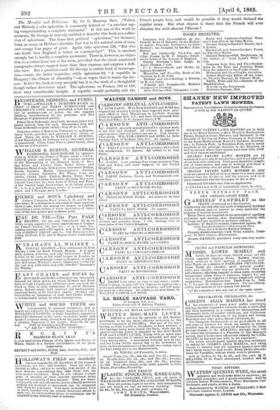The Moralist and Politician. By Sir G. Ramsay, Bart. (Walton
and Maberly.)—An aphorism is commonly defined as "a succinct say- ing comprehending a complete statement." If this use of the word be accurate, Sir George is scarcely entitled to describe this book as a collec- tion of aphorisms. The three first political "aphorisms," for instance, form an essay on Hobbes's doctrine that war is the natural state of man, and occupy four pages of print. Again, take aphorism 134, "But who can doubt that England is better as a monarchy?" This is succinct enough, bat is hardly a complete statement. There is, however, no objec- tion to a rather loose use of the term, provided that the short numbered paragraphs always suggest more than they express, and express a defi- nite view. But a question—and Sir George is rather fond of interroga- tion—wants the latter requisite ; while aphorism 83, "A republic in Hungary ! the climax of absurdity "—is so vague that it wants the for- mer. In fact the book is very unequal, but it is the work of a thoughtful though rather doctrinaire mind. The aphorisms on France, 145 to 148, show very considerable insight. A republic would probably suit the
French people best, and would be possible if they would disband the regular army. But what chance is there that the French will ever abandon the wish dominer 'Baronet'






























 Previous page
Previous page